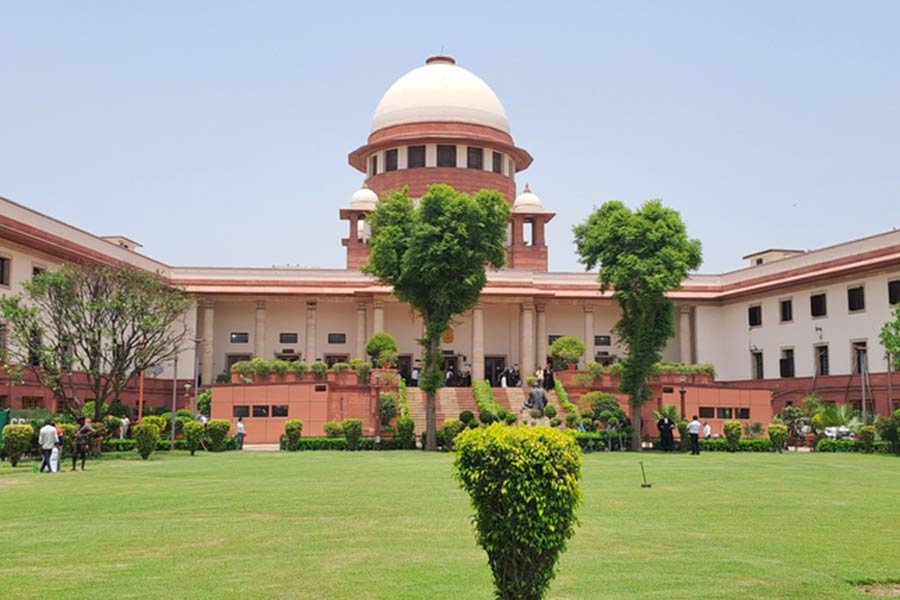The Supreme Court on Tuesday upheld the constitutional validity of the Uttar Pradesh Board of Madarsa Education Act, 2004, and maintained that minorities had a constitutional right to run their educational institutions.
The apex court, however, said the Act did not empower the institutions to award undergraduate and postgraduate degrees and that the government had certain powers to regulate these institutions.
A bench of Chief Justice D.Y. Chandrachud, Justice J.B. Pardiwala and Justice Manoj Misra passed the ruling while setting aside an Allahabad High Court judgment that had declared the Act to be unconstitutional on the ground that it violated the principle of secularism and Articles 14 (equality before the law) and 21A (right to free and compulsory education) ofthe Constitution.
The Madarsa Act enabled the state to regulate, among other things, the standards of education, qualifications of teachers and conduct of exams in madrasasin Uttar Pradesh.
After the Act was struck down by the high court, aggrieved students and organisations had appealed to the apex court.
Writing the judgment, CJI Chandrachud said the right of minorities to administer educational institutions included the right to manage the affairs of the institution in accordance with the ideas and interests of the community in general and the institutionin particular.
“The right to administer minority educational institutions encompasses (i) the right to constitute the managing or governing body; (ii) the right to appoint teachers; (iii) the right to admit students subject to reasonable regulations; and (iv) the right to use property and assets for the benefit of the institution,” thebench said.
“However, the right to administer minority educational institutions is not absolute. The right to administer educational institutions implies an obligation and duty of minority institutions to provide a standard of education to the students. The right to administer is, it is trite law, not the right to maladminister,” the bench added.
The judgment, however, clarified that the state had an interest in ensuring that education standards in minority institutions were similar to other educational institutions.
“The state can enact regulatory measures to promote efficiency and excellence of educational standards. Regulations about standards of education do not directly bear upon the management of minority institutions. The state can regulate aspects of the standards of education such as the course of study, the qualification and appointment of teachers, the health and hygiene of students, and facilities for libraries,” it noted.
The state may even impose a regulation as a condition for grant of aid or recognition, the Supreme Court said.
“Such regulation must satisfy the following three tests: (i) it must be reasonable and rational; (ii) it must be conducive to making the institution an effective vehicle of education for the minority community or other persons who resort to it; and (iii) it must be directed towards maintaining the excellence of education,” the apex court said.
“The high court erred in holding that a statute is bound to be struck down if it is violative of the basic structure. Invalidation of a statute on the grounds of violation of secularism has to be traced to express provisions of the Constitution. The mere fact that the education which is sought to be regulated includes some religious teachings or instruction does not automatically push the legislation outside the legislative competence of the state,” the CJI observed.
“The only infirmity lies in those provisions which pertain to higher education, namely Fazil (postgraduate degree) and Kamil (undergraduate degree). These provisions can be severed from the rest of the Madarsa Act. Thus, only the provisions which pertain to Fazil and Kamil are unconstitutional, and the Madarsa Act otherwise remains valid,” the bench ruled.











